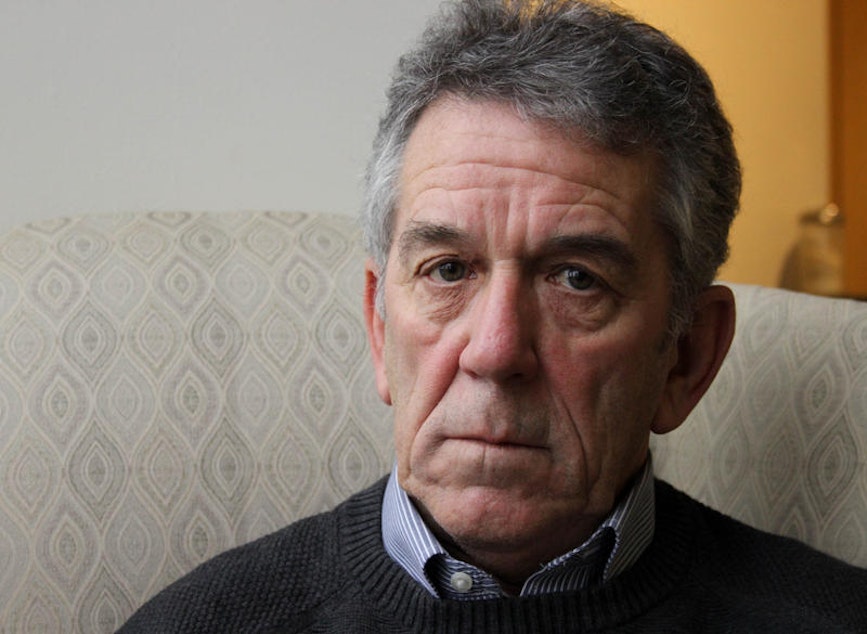Sexual abuse laws poised for massive changes in Washington state

There will be no statute of limitations for people who survived sexual abuse when they were under 16.
The same bill extends the statute of limitations for adult survivors to 10 or 20 years, depending on the severity of the crime. It also makes a significant change to how rape in the third degree is prosecuted — removing a small but crucial piece of language that advocates say ignored trauma research and prevented cases from being tried in court.
Speaking after the passage of the original Senate bill in February, Mary Ellen Stone, executive director of King County Sexual Assault Resource Center, said the bill was the organization's biggest win in at least five years.
"I think we all realize attitudes are changing — the culture is changing on this issue." Stone said. "Everybody knows so many more people who've been impacted by sexual assault. And there was a collective recognition that it's time to make this change."
Andrea Piper-Wentland of Washington Coalition of Sexual Assault Programs said this means that survivors will have more time to process what happened to them.
She said the law would allow survivors "to get out of a situation that they were in, that was prohibitive for them to report."
"There's a myriad of reasons survivors have for delayed reporting," she said.
Lifting the statute of limitations
Before the bill is signed into law, Washington state's statute of limitations dictates that childhood survivors of sexual abuse have until their 30th birthdays to pursue a case. Adult survivors of rape must report their rapes to police within a year, after which they have 10 years to prosecute their cases. If adult survivors of rape don't report the crime to police, they have just a three-year window to bring a case forward.
Sponsored
As of last summer, 15 states had removed statutes of limitations for child sex crimes.
Mary Dispenza of the Survivors Network of those Abused by Priests (SNAP) said she was excited for a change she and fellow survivors had been fighting for since the 1990s.
That said, the bill, once signed into law is not retroactive; it doesn't apply to cases in which the statute of limitations has already expired.
"Going forward, it will indeed and help survivors of childhood priest abuse," Dispenza said. "But it won't do much to allow the thousands in the past who have been harmed by sexual violence on the part of clergy to to have their day in court."
Dispenza said she hoped Washington lawmakers might consider an additional change to account for the survivors of clergy abuse who come forward when they're adults. In Washington state, survivors of childhood sex abuse have three years after their 18th birthday, or after their discovery of the harms of their abuse, to bring a civil case.
Sponsored
Since the Boston Globe's investigation of clergy abuse in 2002, however, nine states have passed laws that open short windows during which survivors with previously expired civil claims could pursue cases against their abusers, according to Child USA. Dispenza said she hopes Washington lawmakers would do the same.
A crucial change around consent
The bill passed by the state Senate on Tuesday would also change the state's definition of rape in the third degree. Washington's third-degree rape language says a victim must demonstrate a lack of consent "clearly expressed by the victim's words or conduct."
This standard, advocates say, doesn't account for one of the body's biological responses to trauma: the "freeze" impulse to lay still, not say anything, or shut down. In the absence of third-party witnesses who observe a clear lack of consent, prosecutors are often reluctant to bring cases, according to advocates.
"Often when talking to prosecutors about these cases, the response that we get as to why they can't move forward on these charges is the victim didn't express or say 'no' enough times or didn't fight back hard enough to meet that standard of clear conduct through words and actions to express non-consent," said Riddhi Mukhopadhyay, legal director of YWCA's Sexual Violence Legal Services.
Sponsored
If the bill passed by the Legislature is signed into law, that "clearly expressed" lack of consent language would be removed. Instead, the law would read that a person is guilty of rape in the third degree "where the victim did not consent to sexual intercourse with the perpetrator" or "where there is threat of substantial unlawful harm to the property rights of the victim."
"It is much more responsive and realistic to what sexual assault looks like for many survivors, where many people physically are in a position where they can't fight back, they can't say anything out loud," Mukhopadhyay said. "It's not just because of surrounding circumstances — it's also based on the neurobiology of how we physically deal with trauma."
If Gov. Jay Inslee signs Senate Bill 5649 into law, it would take effect 90 days after the end of the legislative session.





